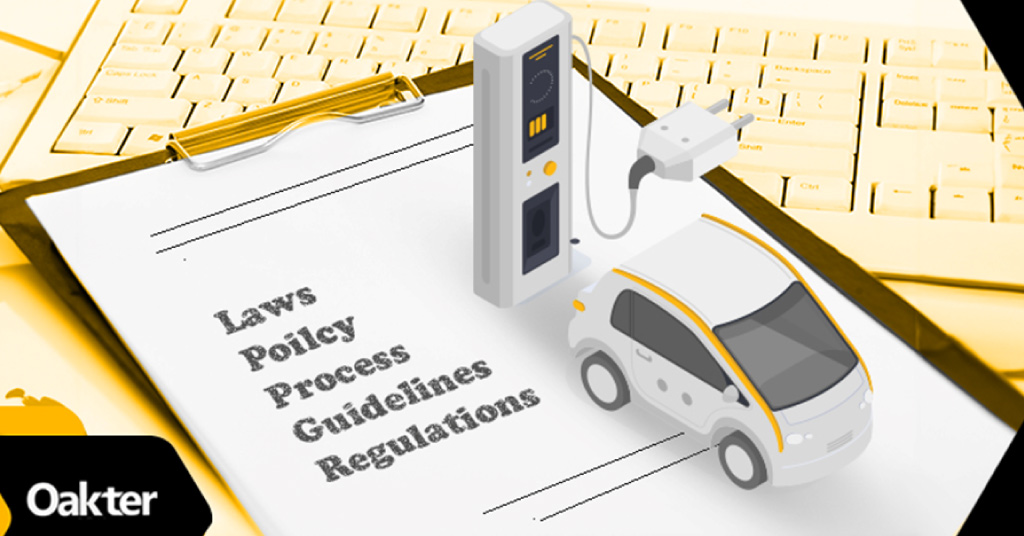
Compliance and Certifications To Consider When Hiring EV Charger Manufacturers
Electric vehicles (EVs) are experiencing a remarkable surge in popularity as the world strives towards sustainable transportation solutions. To meet the soaring demand, the role of EV charger manufacturers has become crucial in supporting the holistic growth of EV infrastructure.
However, compliance and certification issues are vital when selecting suitable EV charger manufacturers.
In this article, we will aim to shed light on the significance of compliance and certification in the hiring process, guiding you towards informed decisions for their EV charger projects.
Demystifying Compliance and Certifications in the EV Charger Industry
Regarding EV chargers, compliance refers to manufacturers’ adherence to full-proof safety standards, regulations, and guidelines set by authorities such as national and international regulatory bodies.
It encompasses meeting specific requirements related to electrical safety, environmental impact, and overall operational functionality.
Certification, on the other hand, involves obtaining official recognition for meeting predetermined standards. EV charger manufacturers can seek certification through independent testing and verification processes conducted by recognised certification bodies.
This certification provides an assurance of quality, safety, and reliability to customers and stakeholders.
Ensuring Compliance: Key Considerations When Hiring EV Charger Manufacturers

When hiring EV charger manufacturers, it is essential to consider various compliance factors to ensure safety, environmental responsibility, and functionality. Let’s explore more:
National and international safety standards
EV chargers must adhere to specific safety standards to ensure user safety and prevent any potential hazards. Key safety standards relevant to EV chargers include:
1. Overview of key safety standards relevant to EV chargers
Familiarise yourself with safety standards such as IEC 61851, UL 2202, and SAE J1772. These standards outline requirements for electrical safety, mechanical design, insulation, and protection against electrical shock.
2. Importance of compliance with safety standards to ensure user safety
Compliance with safety standards is crucial to mitigate risks associated with EV charger usage. Adhering to these parameters guarantees that the chargers are designed, manufactured, and installed with safety as a top priority, protecting users from electrical accidents, fire, or other hazards.
Environmental regulations
In addition to safety considerations, environmental regulations play a vital role in EV charger manufacturing. Here are some key aspects to evaluate:
1. Environmental considerations in EV charger manufacturing
Using eco-friendly materials and manufacturing processes, EV charger manufacturers should minimise their environmental impact. This includes considerations such as reducing carbon emissions, using recyclable materials, and minimising energy consumption during production.
2. Compliance with energy efficiency regulations
EV charger manufacturers should comply with energy efficiency regulations such as Energy Star or the European Union’s Eco-design Directive. These regulations aim to promote energy-efficient charging systems and encourage using renewable energy sources.
Electrical code compliance
Adhering to electrical code requirements ensures EV chargers’ safe and proper installation. Here are some key considerations:
1. Understanding the electrical code requirements for EV charger installations
Familiarise yourself with the electrical codes relevant to EV charger installations, such as the National Electrical Code (NEC) or the International Electrotechnical Commission’s (IEC) electrical standards.
2. Ensuring compliance with electrical codes for safety and functionality
Compliance with electrical codes guarantees that EV chargers are installed correctly, following proper wiring practices, grounding methods, and electrical safety measures.
Navigating Certifications Considerations When Hiring EV Charger Manufacturers
Here are the types of certifications relevant to EV charger manufacturers and the benefits of choosing certified manufacturers:
1. Product certifications for safety and performance
Product certifications ensure that EV chargers meet specific safety and performance standards. These certifications are granted after rigorous testing and evaluation of the charger’s electrical safety, durability, efficiency, and compatibility with various EV models. Common product certifications include CE, ETL, TUV, and other nationally or internationally recognised marks.
2. Manufacturer certifications for quality management systems
Manufacturer certifications focus on EV charger manufacturers’ overall quality management systems. These certifications, such as ISO 9001, demonstrate a manufacturer’s commitment to implementing and maintaining robust quality control processes.
Benefits of Certified EV Charger Manufacturers
Certified EV charger manufacturers offer several advantages that contribute to the success and reliability of EV charging infrastructure. Here are the main benefits:
1. Assurance of quality and reliability
Choosing a certified manufacturer provides assurance that the EV chargers have undergone rigorous testing and meet industry-specific quality standards. Certification verifies that the chargers are designed, manufactured, and tested to perform reliably and safely, ensuring EV users’ consistent and satisfactory charging experience.
2. Enhanced customer confidence and trust
Certification instils confidence in customers and stakeholders. It is an independent validation that the EV chargers meet or exceed industry safety, performance, and quality standards. Certified manufacturers are perceived as more trustworthy and reliable, fostering customer confidence and satisfaction.
3. Access to incentives and subsidies in certain markets
Many regions and governments offer incentives and subsidies to promote the adoption of EV charging infrastructure. In some cases, certification may be a prerequisite to access these benefits. Certified EV charger manufacturers may qualify for financial incentives, grants, or subsidies, reducing costs for both manufacturers and end-users.
Making Informed Choices: Evaluating Compliance and Certifications of EV Charger Manufacturers
When hiring charger manufacturers, it is crucial to evaluate their compliance and certifications to ensure the reliability and quality of the products. Here are the key steps to evaluate compliance and certification:
1. Research compliance history and track record
Assess potential EV charger manufacturers’ compliance history and track record, looking for safety issues, recalls, or legal violations. Check for complaints or incidents related to their products to identify safety-focused manufacturers.
2. Review certifications and accreditations
Examine certifications and accreditations held by EV charger manufacturers. Look for necessary product certifications like CE, ETL, or relevant marks for safety and performance. Also, check for manufacturer certifications like ISO 9001 for quality management systems, indicating adherence to industry standards.
3. Verify certification validity
Contact relevant certification bodies to confirm the legitimacy and currency of claimed certifications. Cross-reference the manufacturer’s certifications in the certification body’s directories or databases. This step ensures certifications are not outdated, expired, or falsely claimed.
Embracing the Future: Prioritising Compliance and Certifications for Successful EV Charging Infrastructure
The future of EV charger compliance and certification is promising. As the EV market grows, regulatory standards and requirements will evolve to address emerging challenges and technologies. It is essential for EV charger manufacturers to stay updated on these developments and adapt their practices accordingly.
Given these considerations, choose Oakter as the trusted EV charger manufacturer. We are an advanced Indian ODM with a robust commitment to compliance, certification, and quality for providing reliable, high-performance charging solutions.
- https://slotjitu.com/
- https://linkslotjitu.com/
- jual303
- jual 303
- slot
- https://heylink.me/jual303/
- https://www.slotjitu.id/
- https://slot-gacor.id
- https://slot-gacor-2026.com
- https://adslotgacor.com/
- https://slotgacor77.id/
- https://slotjitu.net/
- https://bento.me/kawasan303/
- https://www.slotdepo10k.id/
- https://www.slotraffiahmad77.com/
- https://togelsgp2023.com/
- https://www.slotraffiahmad88.com/
- https://www.slotraffiahmad.net/
- https://www.slotraffiahmad.org/
- https://slotgacor-maxwin.com/
- https://www.nausenaadventures.com/
- https://www.kawasan303.org/
- https://slotscatterhitamgacor.com/
- https://superscatterhitam.com/
- https://www.slotraffiahmad.id/
- https://suleslotgacor.com/
- https://www.kawasan303.com/
- https://pgslottop.id/
- https://kawasan138.com/
- https://slotsuleofficial.com/
- https://slot-raffi-ahmad.com/
- https://scatterhitamgacor.com/
- https://linkslotgacor.id/
- https://sundulbola.com/
- https://ucosigtau.com/
- https://www.ia-itb.com/

